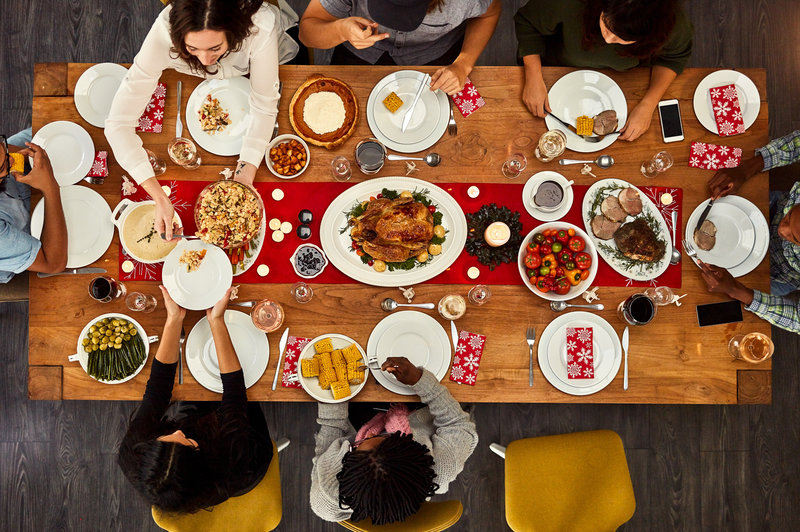How to Free Yourself from Conflict During the Holiday Season

Getting clear about your values can be a great asset. But especially as the holiday season approaches in the US, values can also be a source of conflict—inside yourself and with others. These tensions can make it hard to show up the way you’d like not only with family and friends, but also at work and in public life.
If you’d like to learn how to turn values from a source of conflict into an asset, keep reading below, and consider joining us on November 21 at 12:30 pm EST for the free Optimal Outcomes Webinar: Holiday Edition where I’ll take your questions about how to deal with holiday conflict.
Unlike the private work I do in client organizations, this is completely free and open to the public in service of my mission to help leaders everywhere learn to free themselves from conflict.
If you’re seeking greater impact, invite your family, friends and colleagues to join us. Attending as a group or team will open up dialogue and insight for all of you.
For more information and to register, click here.
How to Free Yourself from Conflict During the Holiday Season
Many people tell me they struggle with family gatherings over the holidays. And those struggles bleed over to their work: it’s simply not possible to have family conflict erupt like a volcano, and then return to work on Monday morning as if nothing happened.
That’s because conflict has this unique power to pull us away from what we say we value most, including the ability to build strong, loving relationships with family and friends, and to achieve our goals at work and beyond.
This piece is dedicated to everyone who has ever told me that they would like this year’s holiday gathering to be different.
Ideal and Shadow Values
If you’ve been reading this blog for a while, you know that we all hold two types of values. I call one type ideal values and the other shadow values.
Our ideal values are those we are proud to hold, and that we discuss openly with others. While ideal and shadow values differ from person to person, some common examples of ideal values are: healthy living, spirituality, adventure, and leadership.
In contrast, shadow values are those things we really care about in life, but we’re not willing to admit we care about. In my work with organizational leaders, I’ve found that common shadow values include: respect, recognition, autonomy, and financial security.
These are the things we really care about, but have a hard time admitting we care about, even to ourselves. When we can’t admit that we care about these things, it’s impossible for us to discuss them with others. And when they remain undiscussable, people inevitably violate these unspoken shadow values, and conflict naturally erupts.
In the next post, I’ll discuss how to turn shadow values into an asset, especially during the holiday season. For today, we’ll look at ideal values, which are often at the core of conflicts around the holiday table.
Imagine this scenario: You’re seated around the holiday table with your extended family. People are enjoying the food and the kids are playing nicely together. But then, as if on cue, Uncle Charlie brings up this year’s controversial topic. Maybe it’s gun control, immigration reform, or Election 2020. Driven by his strong ideal values, Uncle Charlie tells everyone exactly what he thinks.
At first, everyone listens quietly while Uncle Charlie makes his opinions clear. Then, predictably, Cousin Aliki vehemently disagrees with every point Uncle Charlie has just made. A few others chime in, and before you know it, there’s mayhem at the table. It all ends with more than a few hurt feelings, and people angrily stomp away while giving each other nasty looks.
How can you turn values from a liability into an asset?
- Use predictability in your favor. Typically, Uncle Charlie has made the same arguments every year, as far back as anyone can remember. His opinions are predictable. So are Cousin Aliki’s reactions, and the fact that eventually, everyone else will chime in too. Take as much time to prepare for this conversation as you will spend participating in it. If this holiday interaction typically unfolds in the span of about 20 minutes, spend at least 20 minutes preparing for it. (Keep reading for ideas on how to do so.)
- Think ahead about the topics. What is Uncle Charlie likely to want to talk about this year? What opinions is he likely to hold? What opinions is Cousin Aliki likely to rebut with? Write down as much detail as you can about the topic and opinions that are likely to arise.
- Identify the underlying values. Can you identify the ideal values that underlie each person’s position on this issue? For example, if Election 2020 is the topic at hand, what values do Uncle Charlie and Cousin Aliki hold that might be leading them to their conclusions on this topic? Maybe Uncle Charlie values freedom and financial and physical security, and Cousin Aliki values equality and dignity.
- Notice any tensions, and overlaps, between values. We often assume that if people are fighting about morally driven topics, their values must be in conflict or tension with one another. This is not always the case. In fact, based on my experience with thousands of clients and students, more often than not, the underlying values driving each seemingly different position overlap to some degree, or are at least compatible—able to exist side by side. For example, Uncle Charlie’s and Cousin Aliki’s values — freedom, security, equality, dignity — can be considered compatible. It’s not necessarily true that you’d have to negate one in order to get the other. What would happen if you asked Uncle Charlie or Cousin Aliki (or anyone else at the table) about their underlying values? Or what if you shared your own underlying values on this topic? Shifting the conversation to discuss the underlying values could be refreshing for everyone around the table, especially since they’re often more compatible than we think.
- Consider your role. Maybe you’re the Uncle Charlie or Cousin Aliki in your family. Or maybe you’ve been playing the role of silent bystander, watching their conversation from the sidelines. Or maybe you’ve tried to mediate, but failed in the past. Write down whatever role you’ve been playing, and consider how you could switch things up this year. Could you bring some humor to the situation? If you’re the host, could you introduce “discussion rules” at the table, to help the conversation move in a productive direction? Or could you suggest to Uncle Charlie that if he wants to talk politics, he might approach Cousin Aliki privately? What is the most helpful role you can imagine playing? Often all it takes is one person doing something different to break an entrenched conflict pattern.
- What is an optimal outcome for you? Consider what you would like to happen at this year’s family gathering. How will things begin and end in this ideal scenario? Challenge yourself to imagine not only what you’ll see and hear in this ideal situation, but also what you’ll taste, touch, smell, and what emotions you’ll experience while it’s happening and when it’s over. Your ability to imagine it is the first step to making it happen.
If you’re interested in digging deeper into values for the holidays, I have 3 more suggestions:
- Pick up Priya Parker’s book The Art of Gathering. Anyone planning to host or attend a holiday gathering, big or small, should read this book beforehand. It is full of excellent advice and engaging stories about how to create gatherings that build relationships in a meaningful way.
- Watch the 9-minute TEDx talk where I discuss how I used values to free myself from a challenging situation with my mom. It has been viewed more than 2,700 times and offers a quick dose of inspiration.
- Join us on Thursday, November 21 at 12:30 pm EST when I’ll be teaching the free, 1-hour Optimal Outcomes Webinar: Holiday Edition. We’ll apply the values practice to a real holiday situation, and then we’ll quickly move to the Q & A so you can bring your questions and get some answers. Click here for more information and to register. And for even greater impact, invite your family, friends and colleagues to join us by forwarding this email to them.
In freedom,
Jen
Subscribe to the newsletter and learn to achieve optimal outcomes.
When you sign up, you'll also receive a complimentary Optimal Outcomes Workbook.
"*" indicates required fields


